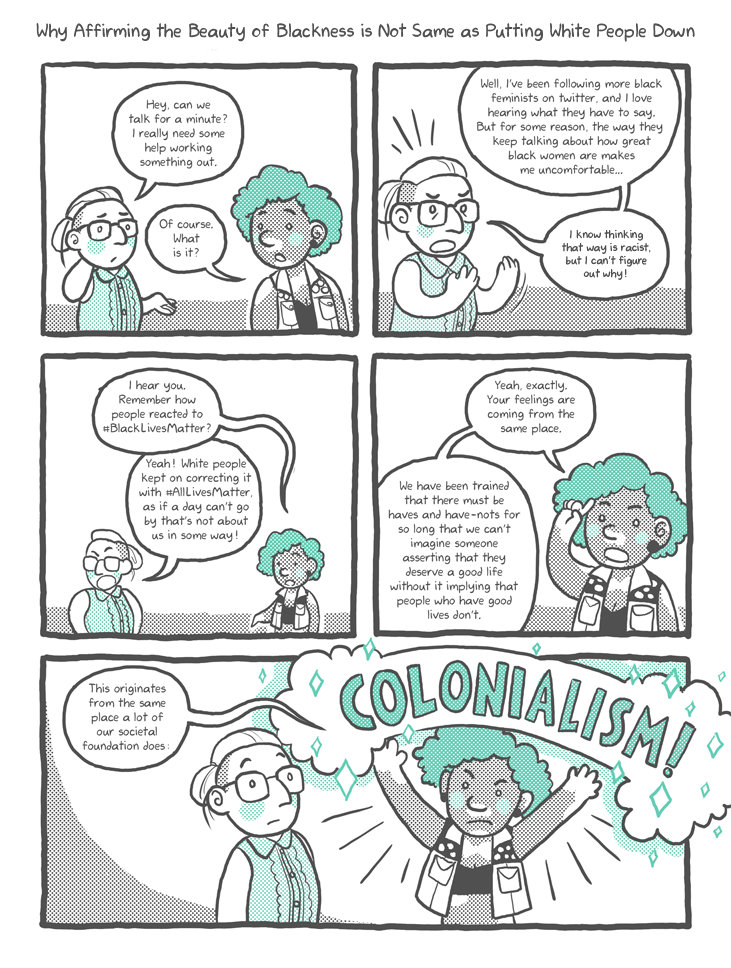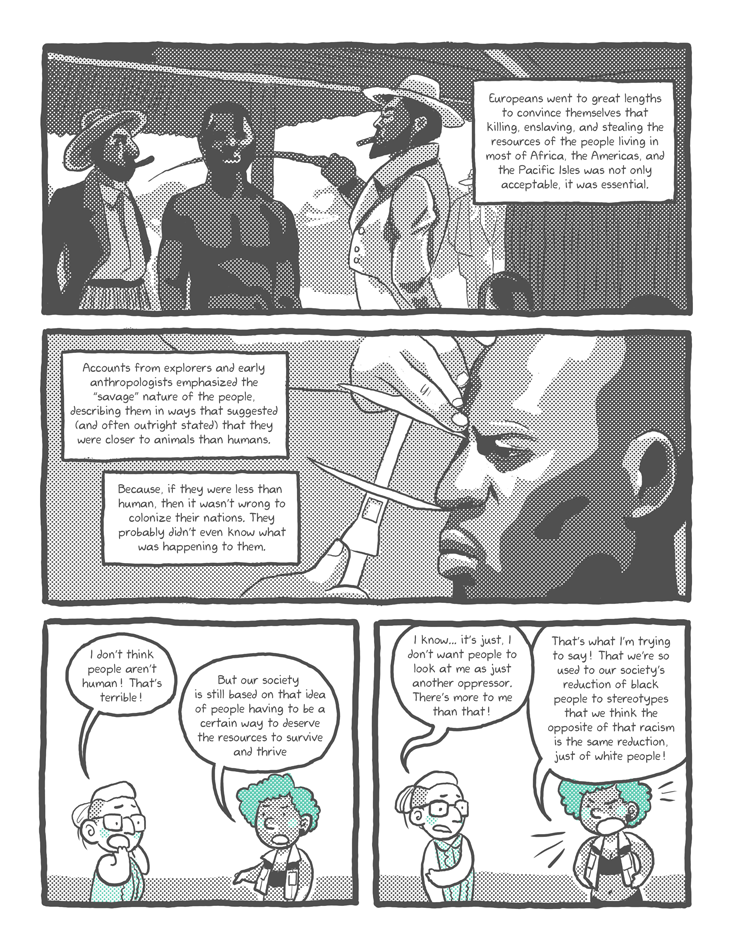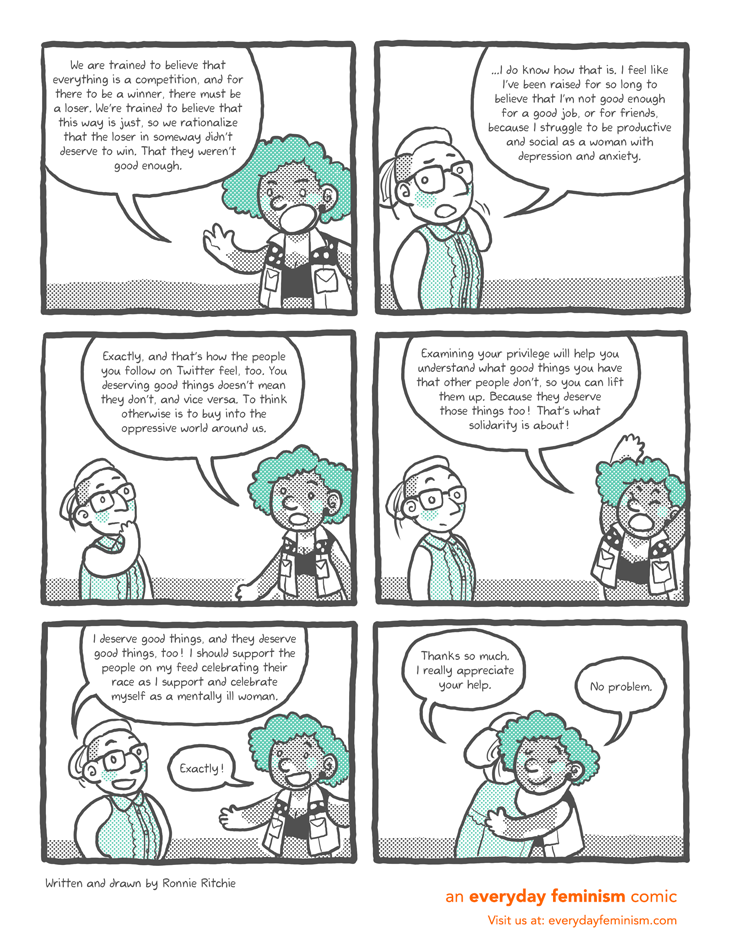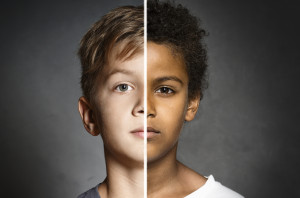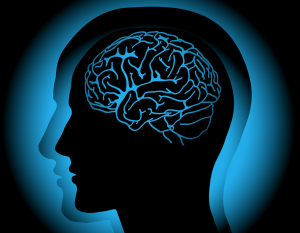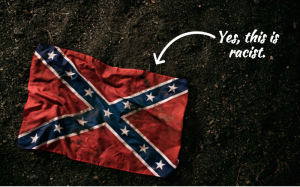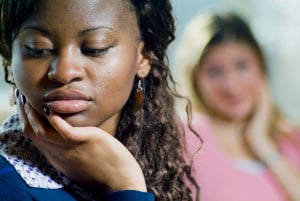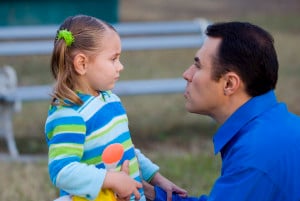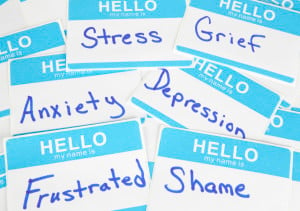Panel 1
Friend A: (approaching Friend B) Hey, can we talk for a minute? I really need some help working something out.
Friend B: Of course. What is it?
Panel 2
Friend A: (Looks really frustrated, clearly having trouble with the situation) Well, I’ve been following the twitter accounts of more black feminists, and I love hearing what they have to say. But for some reason, the way they keep talking about how great black people are makes me uncomfortable… I know it’s racist to think that, but I don’t know why!! I can’t figure out!
Panel 3
Friend B: (pondering) It sounds like you have some internalized oppression to unpack. Remember how people reacted to #BlackLivesMatter?
Friend A: Yeah! White people kept on correcting it with #AllLivesMatter, as if a day can’t go by that’s not about us in some way!
Friend B: Yeah, exactly. Your feelings are coming from the same place.
Panel 4
Friend B: We have been trained that there must be haves and have-nots for so long that we can’t imagine someone asserting that they deserve a good life without it implying that people who have good lives don’t.
Panel 5
Friend B: This originates from the same place a lot of our societal foundation does: colonialism.
Panel 6
(Recreation of a famous image of two white men presiding over a ship as black slaves are loaded under the deck)
Friend B: Europeans went to great lengths to convince themselves that killing, enslaving, and stealing the resources of the people living in most of Africa, the Americas, and the Pacific Isles was not only acceptable, it was essential.
Panel 7
(Recreation of anthropological photographs from the 1800s that had Africans stand with markers on their bodies to measure their anatomy.)
Friend B: Accounts from explorers and early anthropologists emphasized the “savage” nature of the people, describing them in ways that suggested (and often outright stated) that they were closer to animals than humans. Because if they were less than human, then it wasn’t wrong to colonize their nations. They probably didn’t even know what was happening to them.
Panel 8
Friend A: (shocked) I don’t think any people aren’t human! That’s terrible!
Friend B: But our society is still based on that idea of people having to be a certain way to deserve the resources to survive and thrive.
Panel 9
Friend A: I know… it’s just, I don’t want people to look at me as just another oppressor. There’s more to me than that!
Friend B: (sighs) That’s what I’m trying to say! That we’re so used to our society’s reduction of black people to stereotypes that we think the opposite of that racism is the same reduction, just of white people!
Panel 10
Friend B: We are trained to believe that everything is a competition, and for there to be a winner, there must be a loser. We’re trained to believe that this way is just, so we rationalize that the loser in someway didn’t deserve to win. That they weren’t good enough.
Panel 11
Friend A: (thoughtfully) I know how that is. I feel like I’ve been raised for so long to believe that I’m not good enough for a good job, or for friends, because I struggle to be productive and social as a woman with depression and anxiety.
Panel 12
Friend B: Exactly, and that’s how the people you follow on Twitter feel, too. You deserving good things doesn’t mean they don’t, and vice versa. To think otherwise is to buy into the oppressive world around us.
Panel 13
Friend B: (looking positive) Examining your privilege will help you understand what good things you have that other people don’t, so you can lift them up. Because they deserve those things too! That’s what solidarity is about!
Friend A: (looking more confident) I deserve good things, and they deserve good things, too! I should support the people on my feed celebrating their race as I support and celebrate myself as a mentally ill woman.
Panel 14
Friend A: (embraces Friend B) Thanks so much. I really appreciate the help.
Friend B: (hugs them back) No problem.
